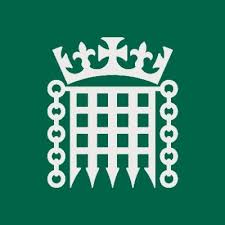The speech made by Geoffrey Mander, the then Liberal MP for Wolverhampton East, in the House of Commons on 17 February 1932.
I desire to call attention to a matter of which I have given notice to my right hon. Friend the Secretary of State for Foreign Affairs, one in which a great amount of interest is taken in this country, and not in this country alone. I raise it in no spirit of hostility, but in order to give the Government an opportunity of making clear to the public exactly what the position is. The question concerns the appointment of Lord Cecil as a member of the British delegation to the Disarmament Conference. It has come as a great surprise and a shock to many people in this country to discover that he has not found it possible to accept the invitation extended to him.
I venture to say that on this matter Lord Cecil occupies an almost unique position in the country. In very wide circles, in all three parties, Conservative, Liberal and Labour, he is regarded as the leader of the peace and disarmament movement in the country. More than that, for years past he has represented successive Governments on the Preparatory Commission of the Disarmament Conference. He has worked right through the technique and the details for a number of years past, and from that point of view is as well fitted as any living individual to be there to assist, to advise and to conduct negotiations. He knows the whole technique, he knows the personalities of the different individuals with whom one comes into contact there, and he knows exactly how far one could go in this, that, or the other direction. It is difficult enough to hope for the success of a Disarmament Conference when one finds the machinery of the League of Nations functions rather feebly in the case of open aggression, when there may be a tendency arising in the world once more to regard treaties as only scraps of paper. In those circumstances, I am sure it would be the desire of everybody in the House and the country to see the British delegation as strong as it is possible to make it.
What are the facts so far as they are known to the public? We know that Lord Cecil has been invited to be a member of the Delegation, and that he has not been able to accept, and the reason given by the Lord President of the Council in this House the other day, as I understood it, was that Lord Cecil felt that he would be of more assistance outside the Conference. If a person is not in accord with the policy of a certain group, he naturally would not feel very useful inside that group. It rather makes one wonder and ask questions to get information as to what exactly is going on inside. It is clear from the statements made at the Geneva Disarmament Conference, both by the right hon. Gentleman the Foreign Secretary and by Lord Cecil, that there is a certain divergence of view. The statement of the Foreign Secretary, if he will permit me to say so, seemed to me to be in a great many respects a most admirable statement. All I would say about it is that I hope that it does not represent the last word on what the Government might be prepared to do, after negotiation with other Powers. Lord Cecil in his statement did go a good deal further. I do not know that in the long run there would necessarily be any complete divergence of view. I hope not. I hope that in due course it may be possible—and I trust that the Foreign Secretary will be able to make some indication of this kind tonight—that, although Lord Cecil is not able at the moment to join the Delegation, he is not without hope that at some later stage of the proceedings he may be brought in to the great satisfaction of all people in this country who are keen on this movement and on the promotion of the interests of the Conference.
There is only one other word I would say, that is that if it became known—and there is a chance of this in the minds of people in this country—that Lord Cecil was unable to serve the country in this capacity because he was out of sympathy or in disagreement with the policy of the Government, I feel, in all seriousness, that it would do as much as anything to damage the prestige of this Government as a truly national Government.
